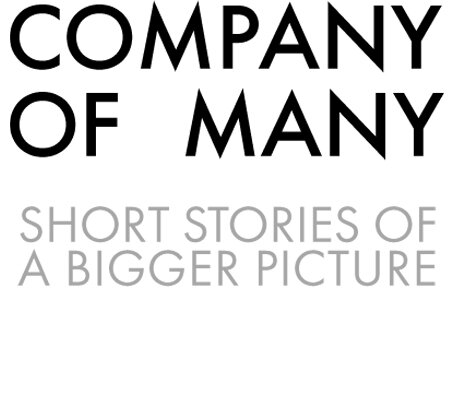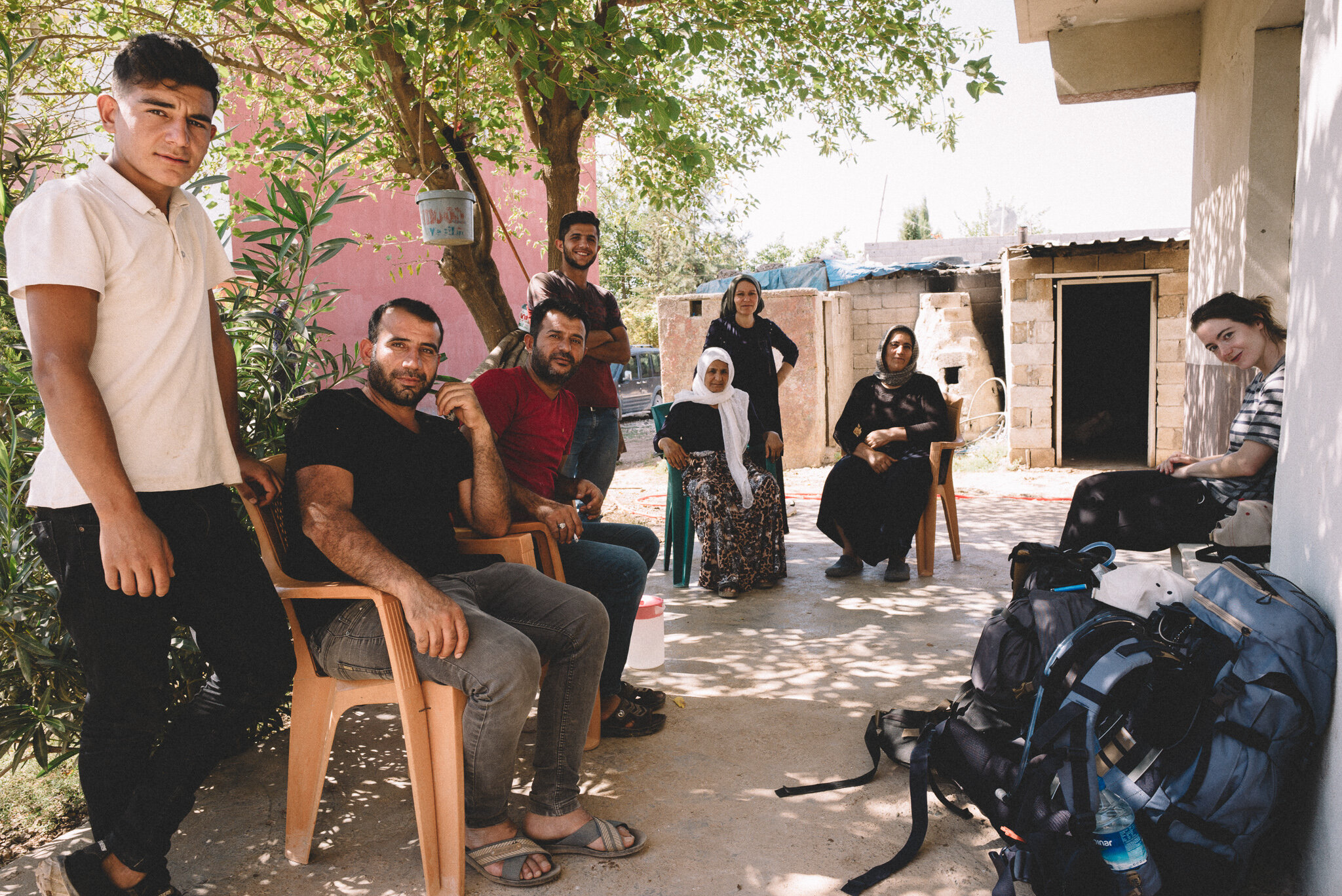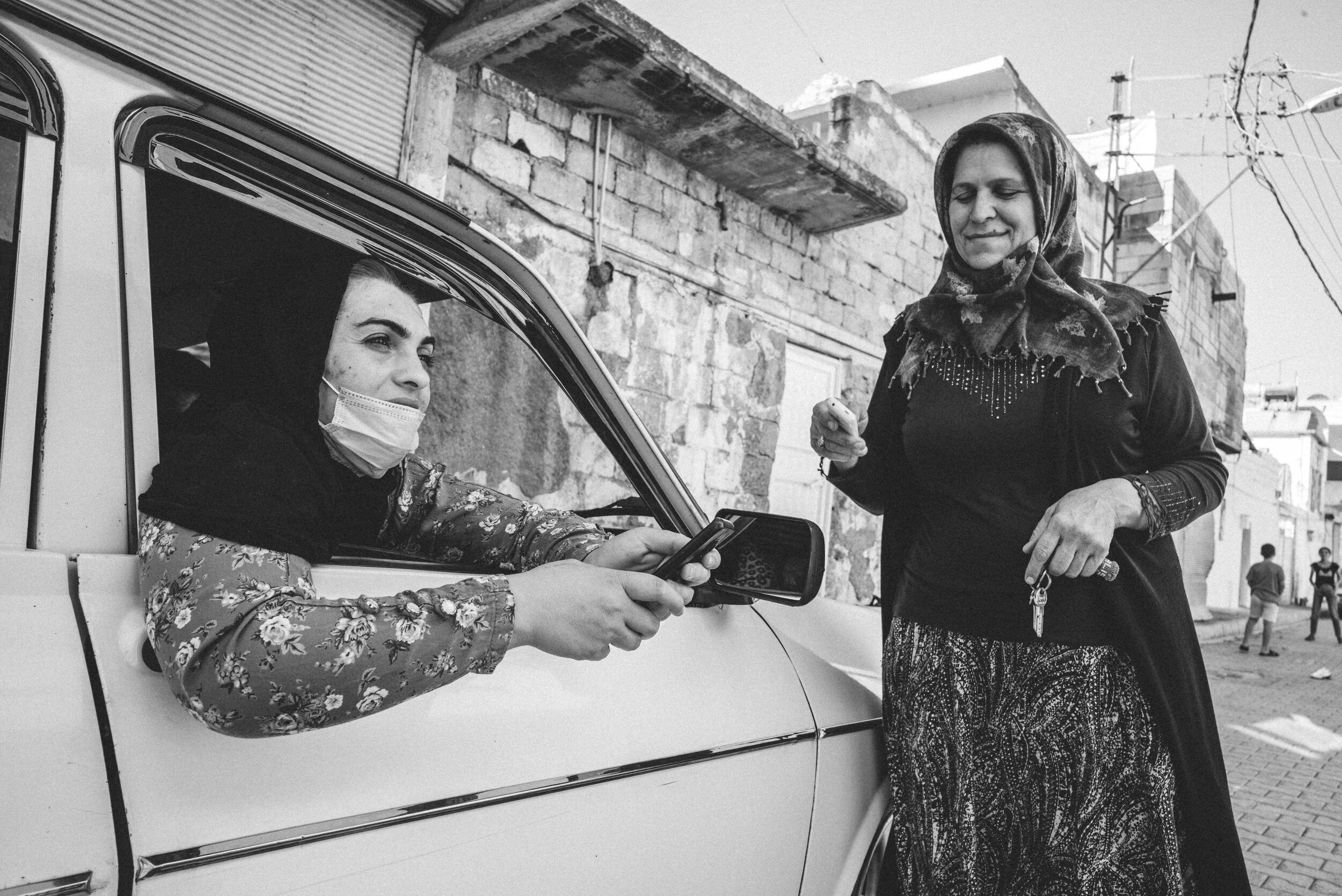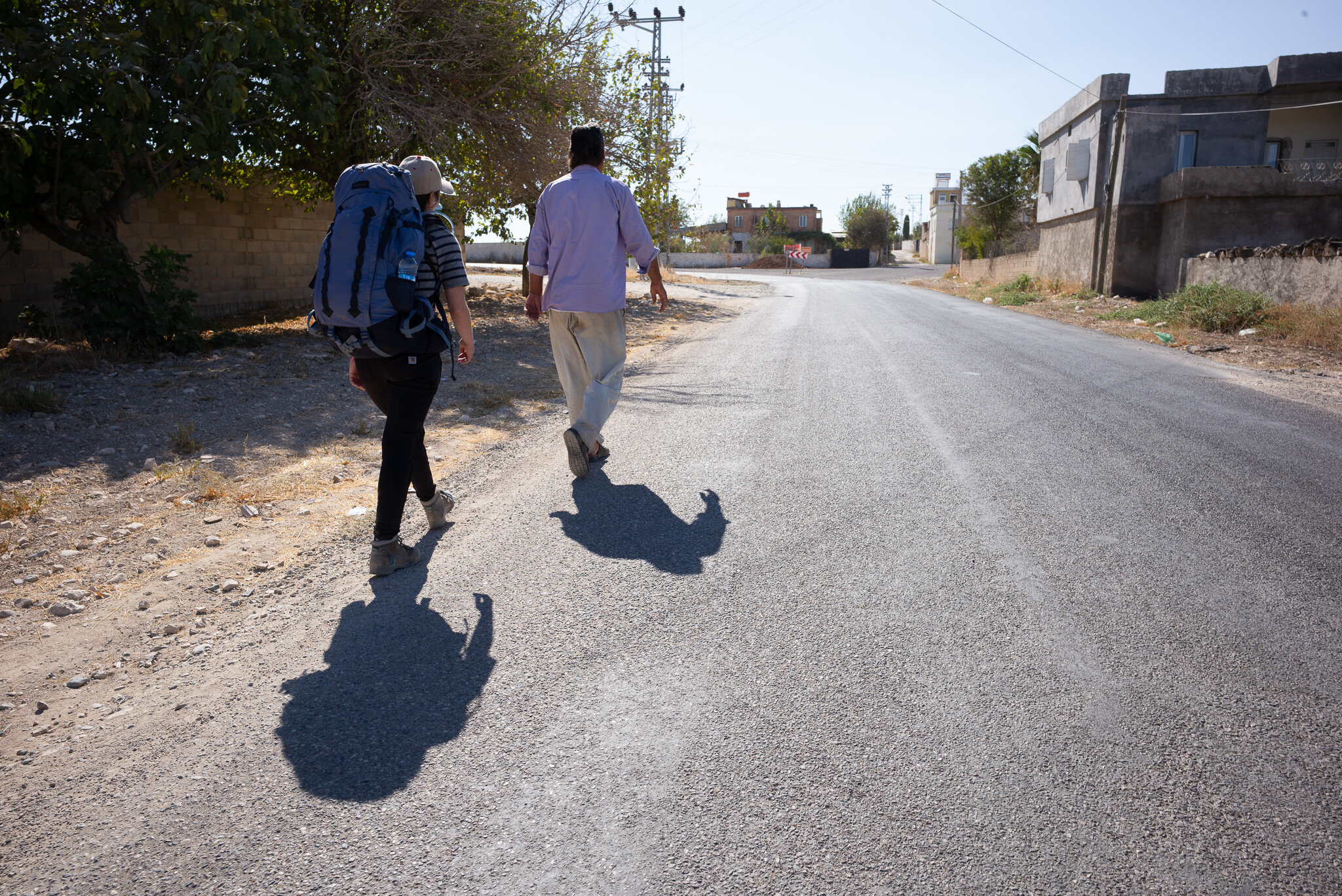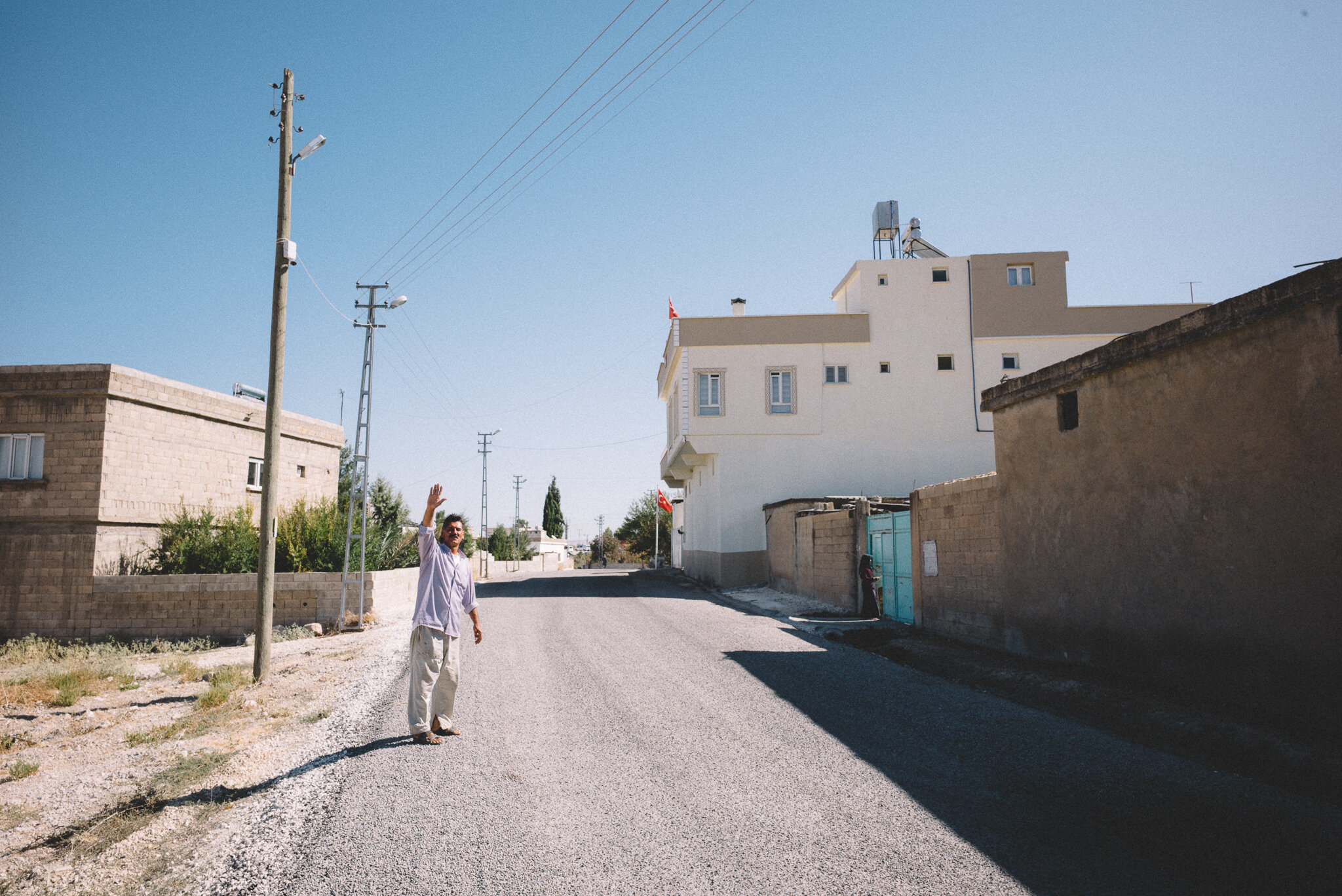Trek notes: observed and felt from Suruç to Birecik and onwards
Suruç leads to green cotton fields. A stream runs along the road and we are caressed by a breeze. In these pleasant conditions we meet no fewer than five Ibrahims among the workers and are received in their yards and gardens by whole families. For instance, the family of Bakr, who behaves as though he had been awaiting the arrival of old friends the moment he notices the pair of us toiling on the edge of his Kurdish village. “It is such a strange sight to see two people such as yourselves, struggling with the backpacks but evidently enjoying themselves also. I speak German, let’s converse, here is shade and a shower, if you would like.” Bakr learnt to speak German and some English through his work on the coast.
Many men from the area are seasonal workers in Alanya or even further, Antalya. This year, many of them were sent back to the east much sooner than usual because of the pandemic. “We’re all at home, here”, gestures Bakr. “Thankfully we can grow our own food to care for our children.” One of is brothers, Ibrahim in fact, was still there but told us on the speaker phone that it was very quiet. “It is not as easy as before here, no tourists, fewer restaurants. Less money.”
While Daniel and I make our progress on the hike, the news of our presence is also handed down. We are met by an Ibrahim on a tractor, being driven around by an older cousin - who is completely expectant of his photo series. Other cotton pickers had sent their photos around from earlier in the day.
In the past days of walking and talking we’ve gone from dusty, bare rocks to fields, rich farmland. (I’m counting Sanliurfa to Suruç in this passing of landscapes.) On Sunday we see the cotton but also corn, papers, pomegranates. A stream of water ran along the asphalt road on the verge, frogs jumped from our sturdy footsteps. After this time spent with the backpack and hobbling after Daniel, I have actually really looked forward to a hotel - just for a moment, without translation problems - and lowering everything to the floor. Arriving in Birecik on October 4, 2020, the bodies participating in Meeting Abraham needed to be at rest in southern Turkey. We’re up to almost 60 kilometers. Some respite was needed, if only proven by the fact that I pul a sore muscle in my back on Monday morning, when I try to hand wash my underwear in the hotel bathroom sink.
A shocking notion, however: once in the city, everything is less comfortable. The heat lingers here, the smoke and smells of barbecues and kebabs, the staring eyes of residents - irritated or hostile rather than curious - watching us pass.
Our rest day is spent on a leisurely stroll around Birecik. We don’t actually feel like going on a chase for a new Ibrahim to portray. The work of the social aspects has sunk in and a bit of a break is needed. I’m reminded of a question that our first help, the tourist guide Rhedvan in Sanliurfa, let out when when he watched on as Daniel was busily entertaining a toddler Ibrahim in Harran: “The need to get an Ibrahim to photograph, per se, isn’t that a little… forced?” Nevertheless, even here in slightly-strained Birecik, an Ibrahim finds his way to us. We’re in a little alley, and Daniel is loosely shooting snapshots from life on the streets. Then a woman calls out to me from a car. It is parked under a ‘No Parking’ sign. The woman is in the company of an elder one, presumedly her mother. They beckon from the vehicle’s rolled-down windows: come here! Don’t you want to take a picture? We do, and so we approach - to find that the first woman’s husband, sitting next to her behind the steering wheel… is called Ibrahim. Still a ‘catch of the day’, Daniel and I hint to each other after our excited photo shoot and note-taking.
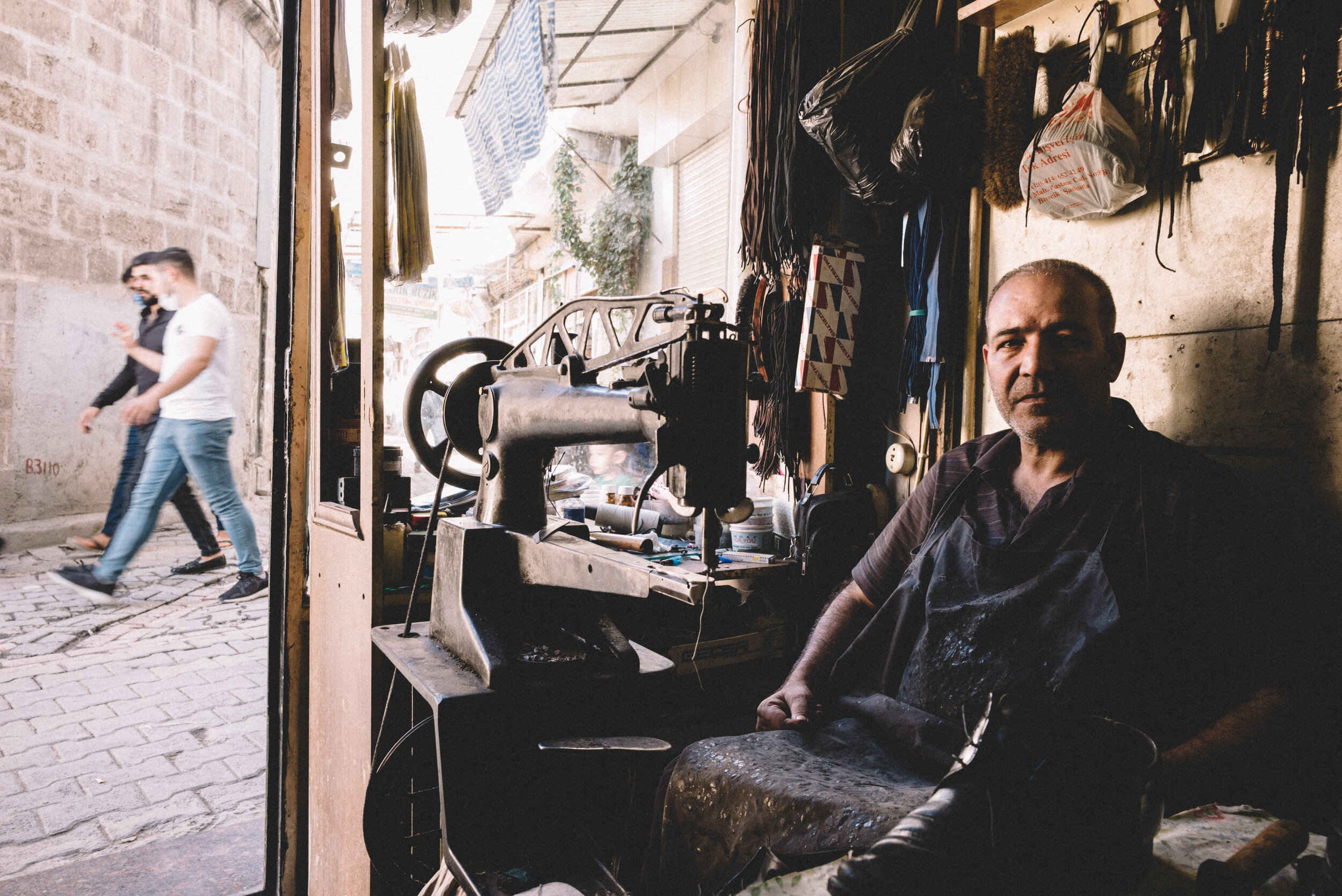
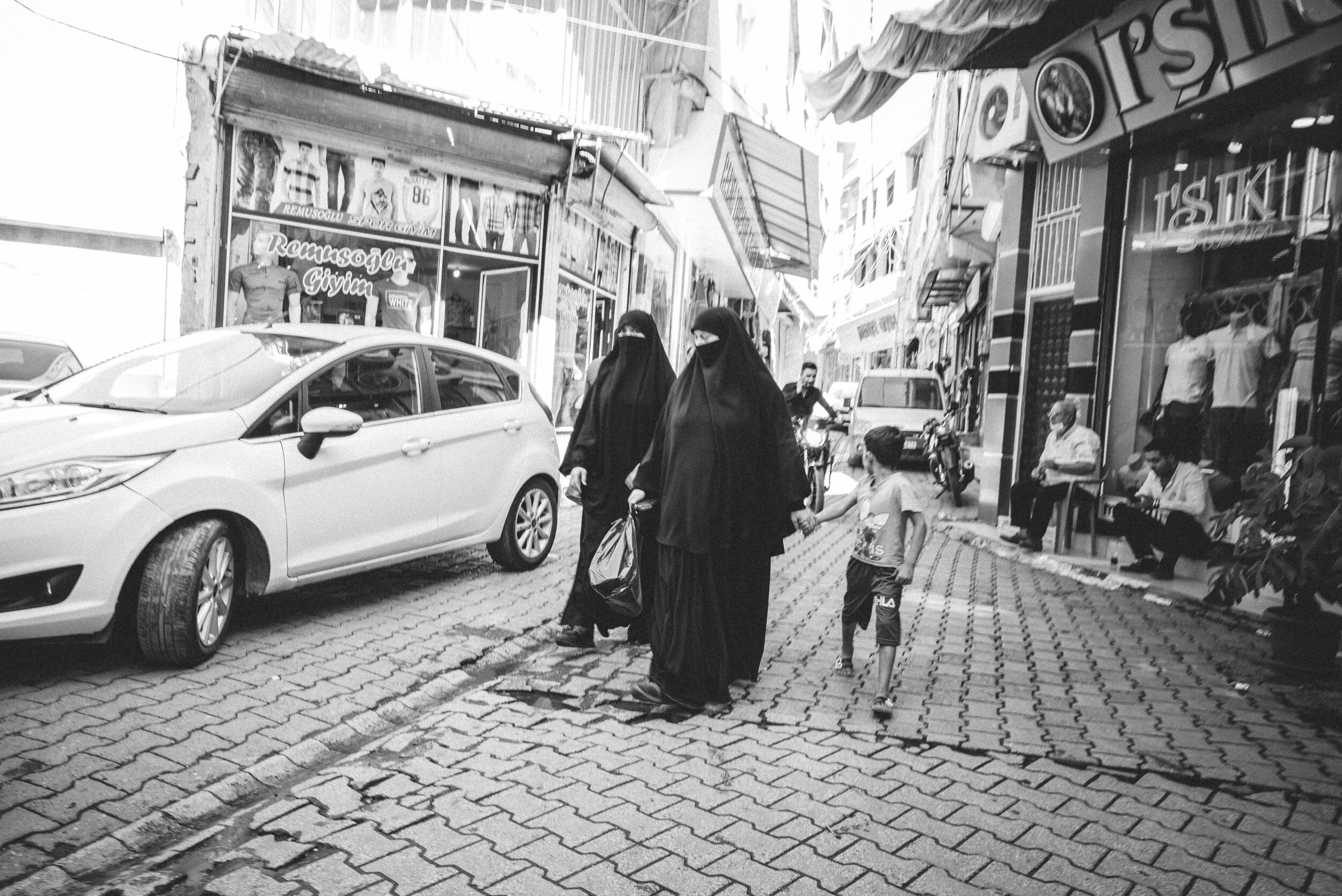
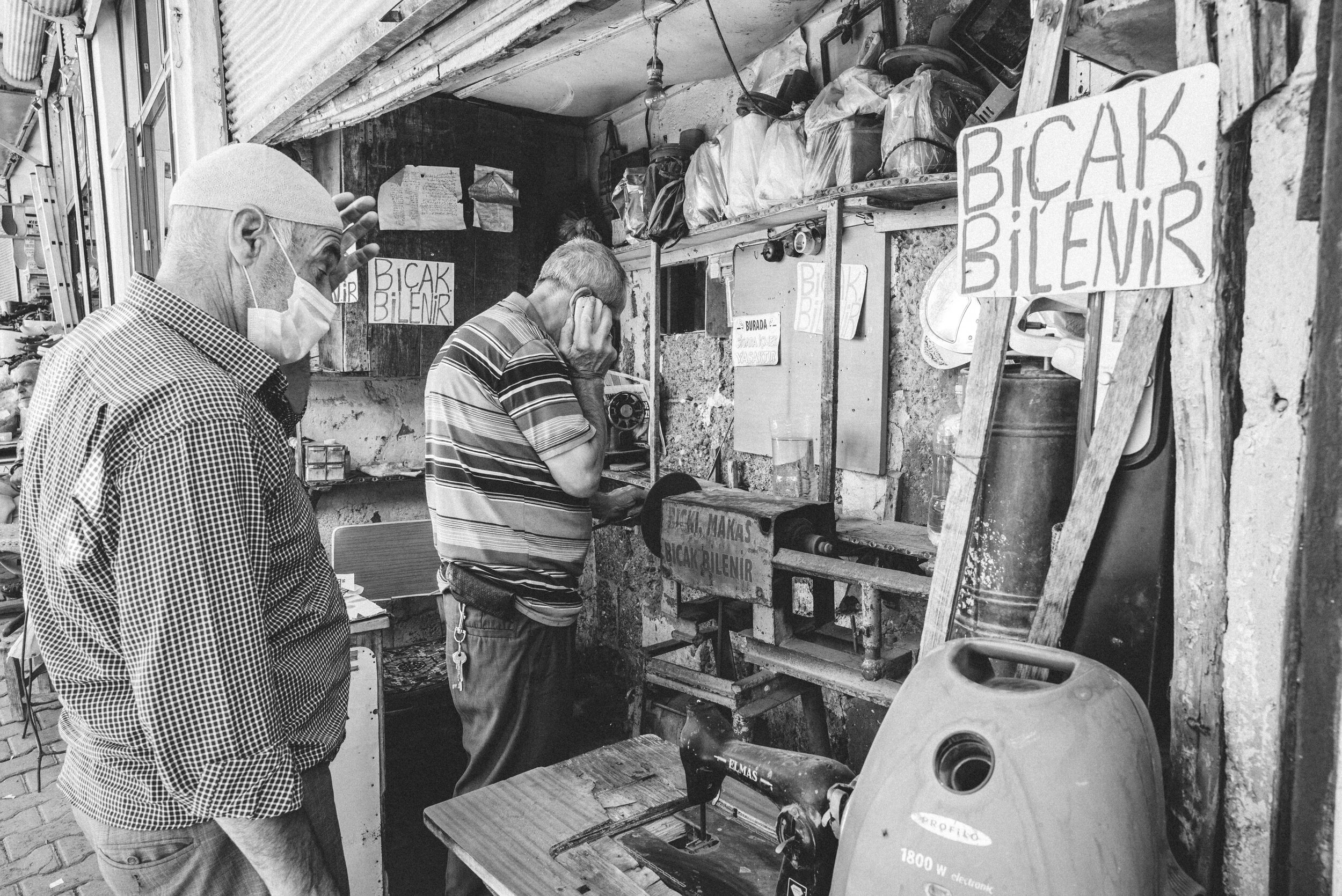
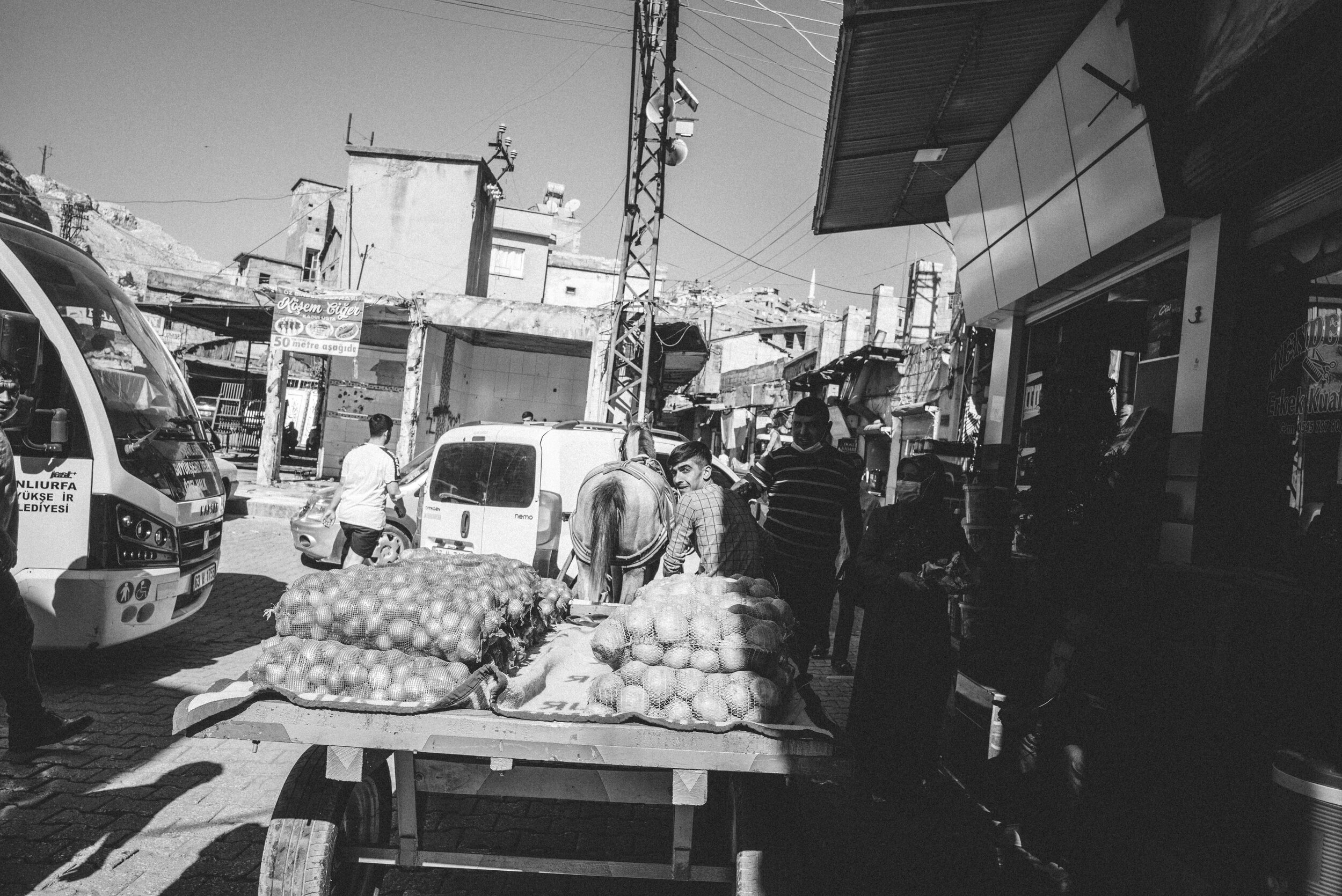
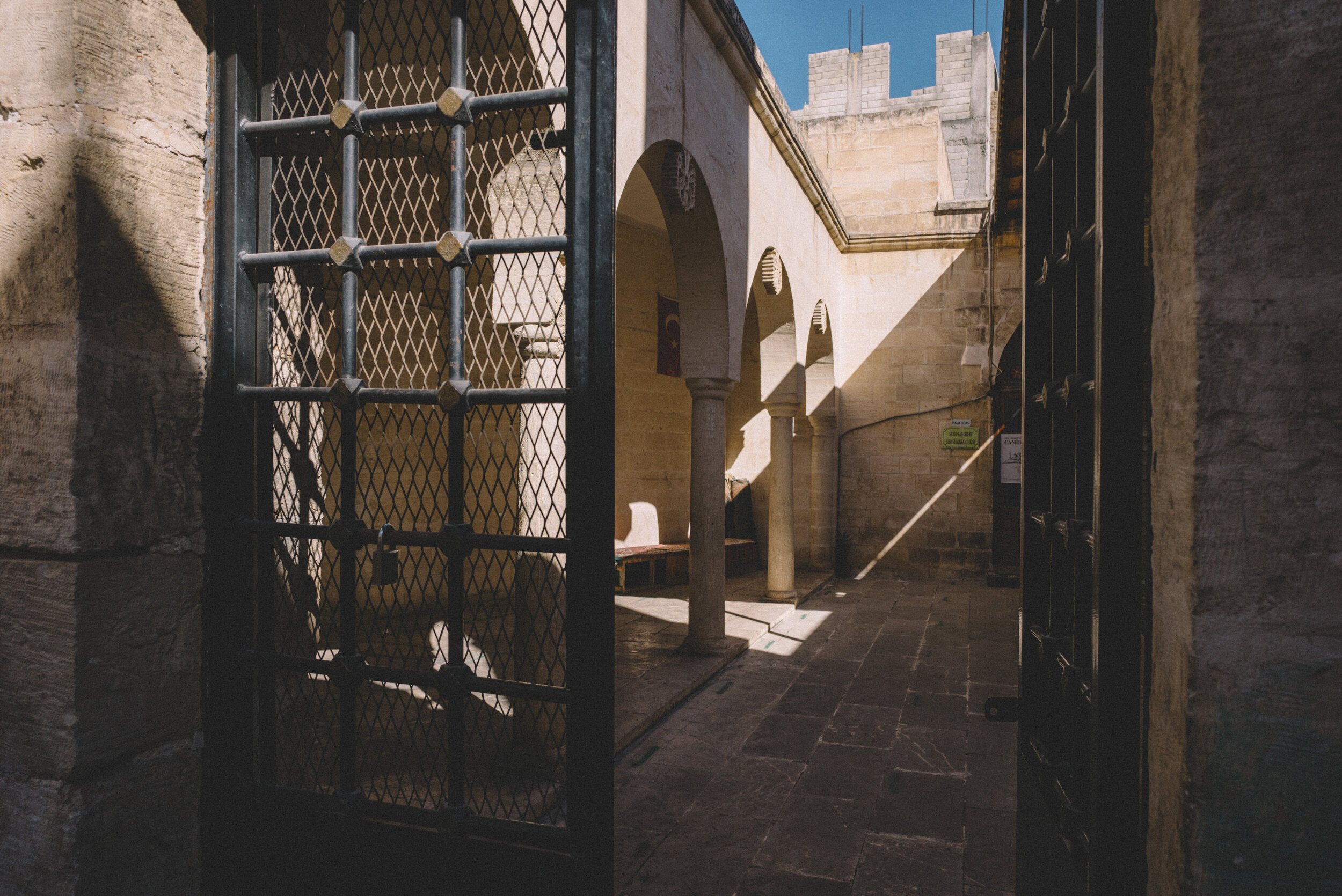
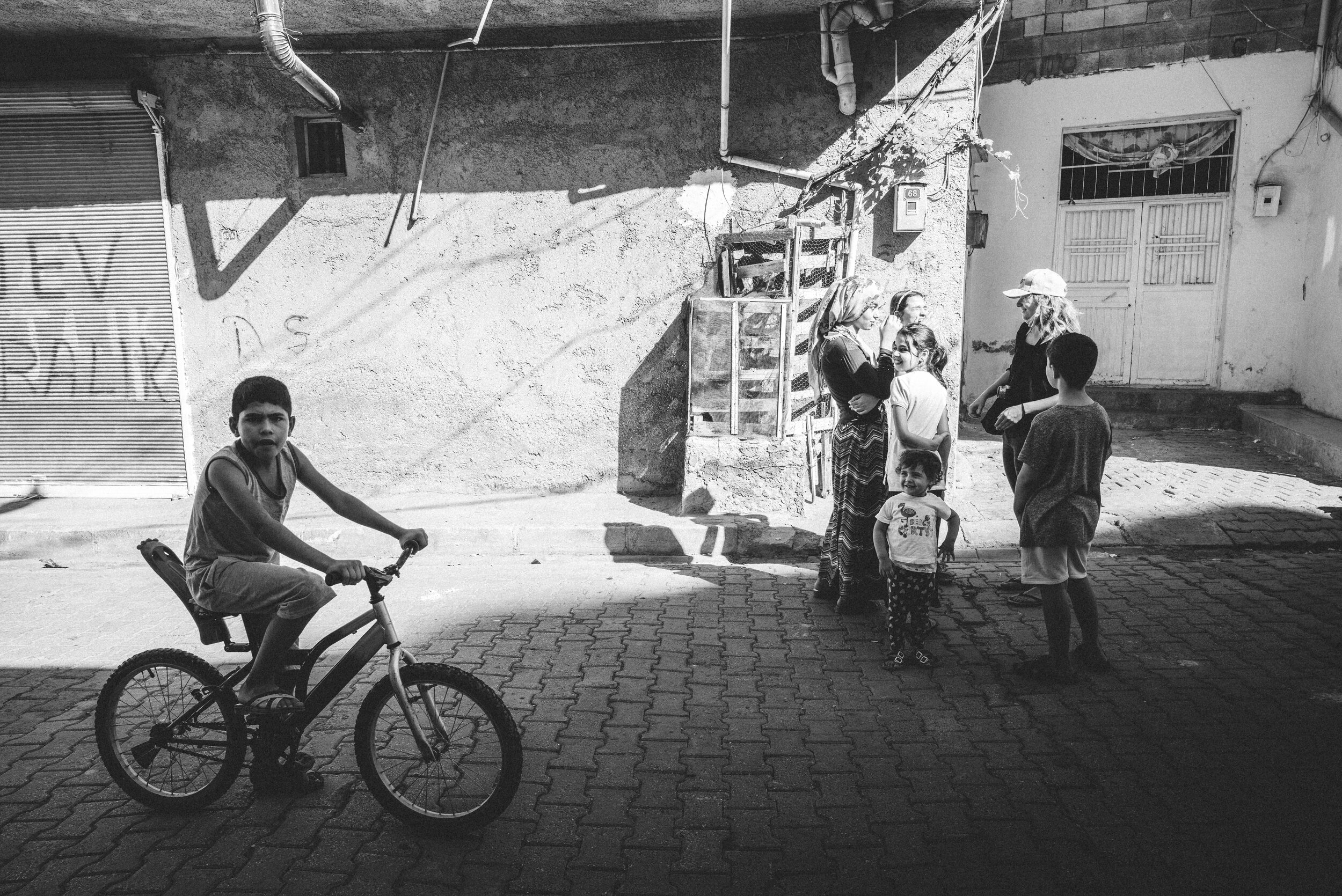
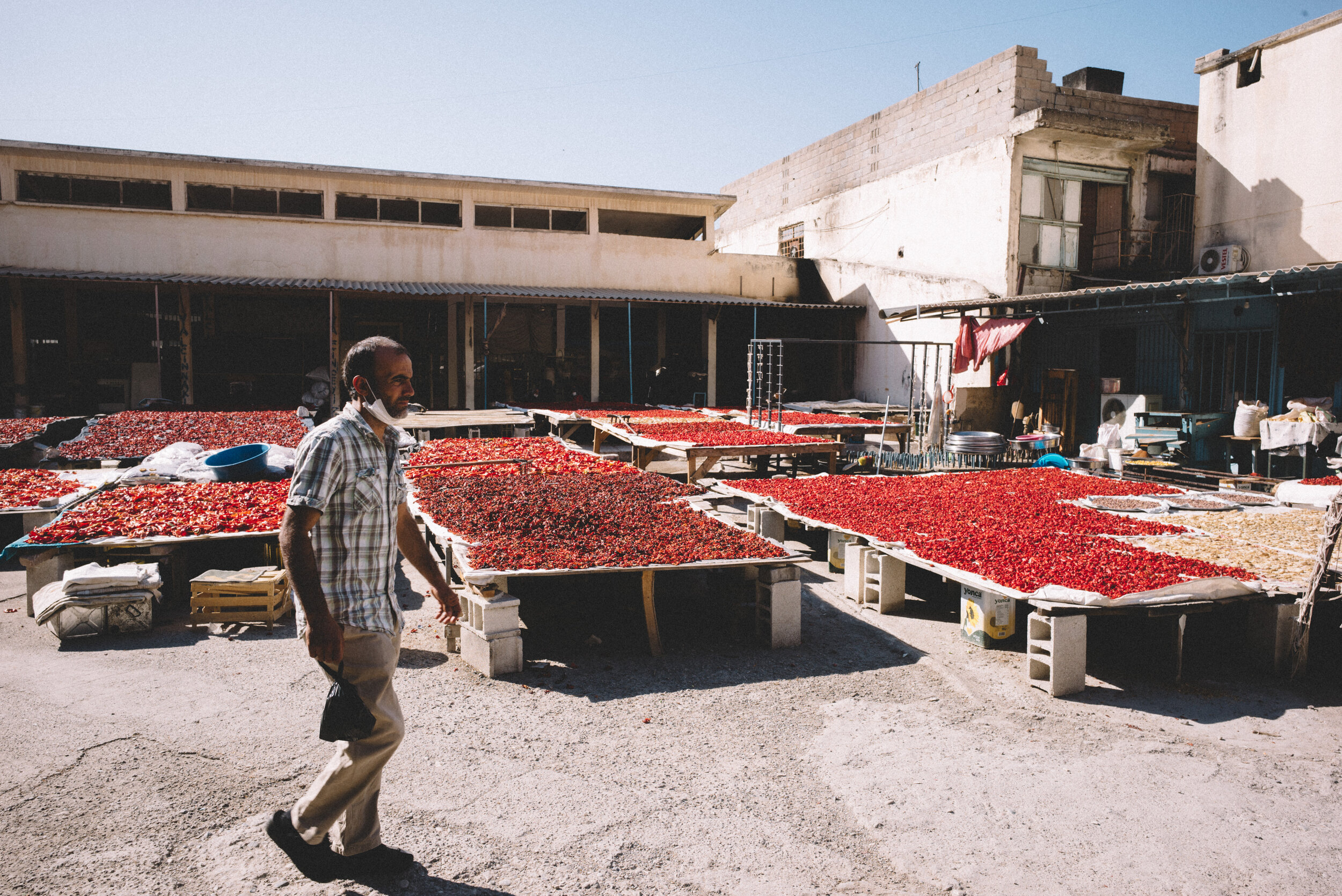
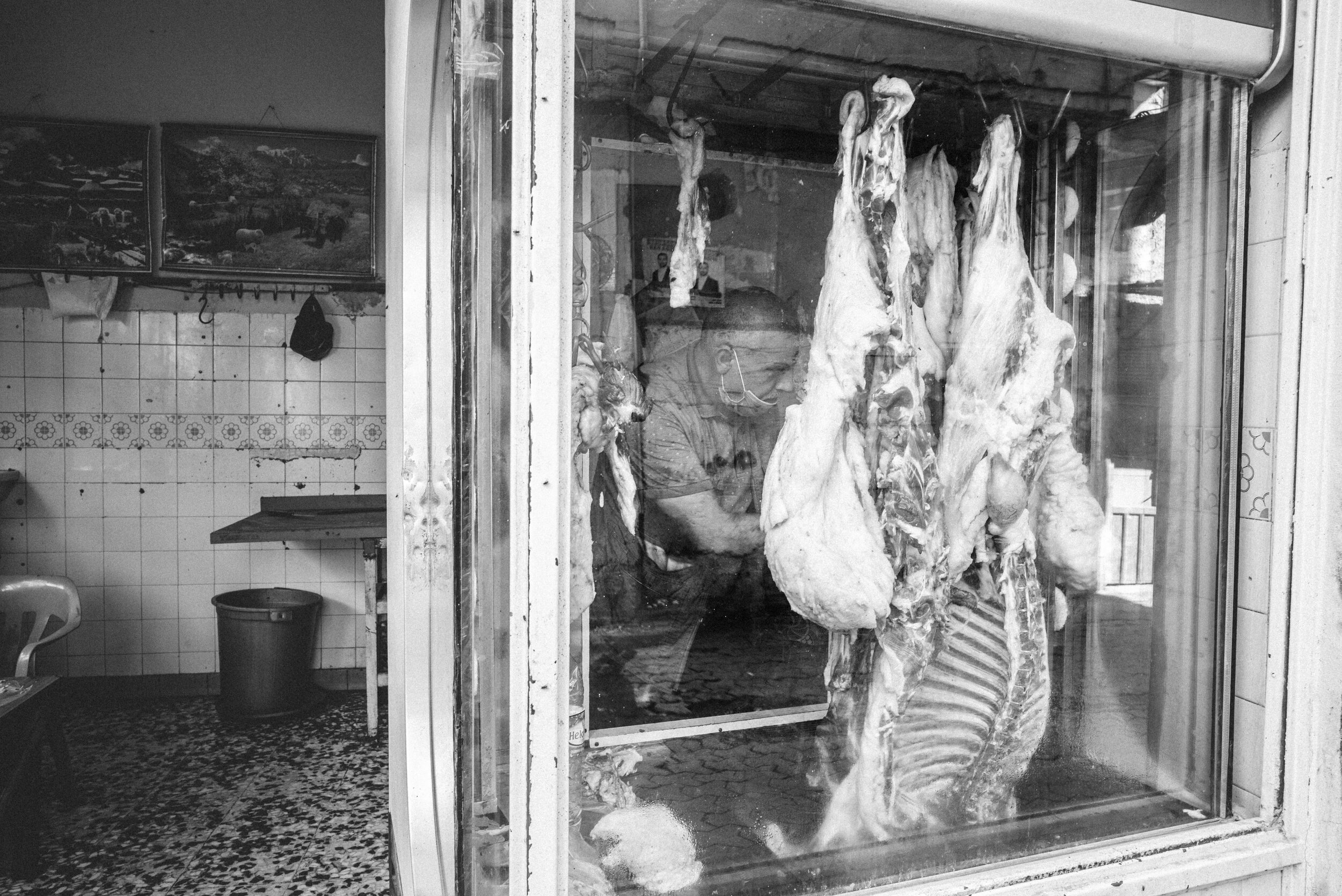
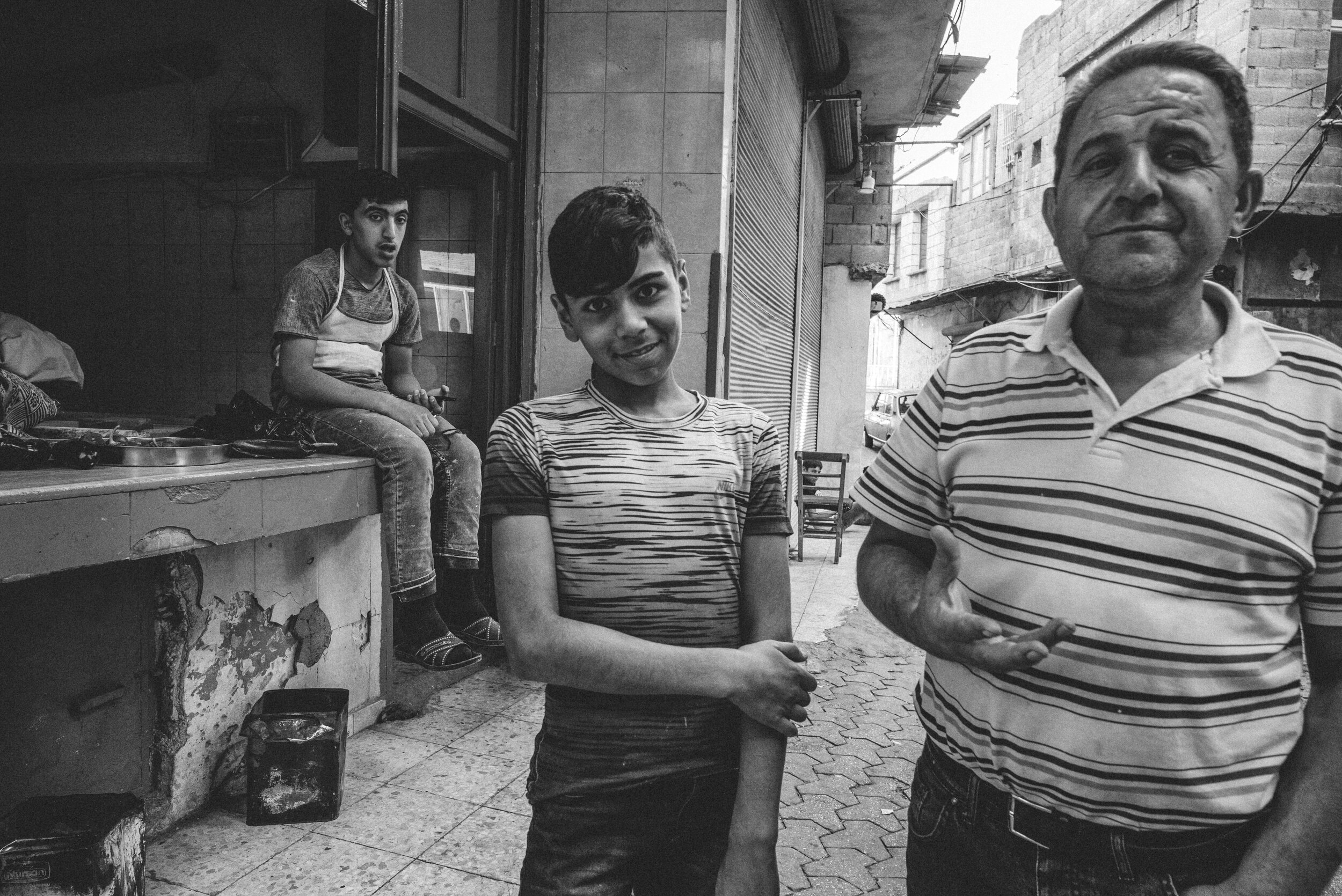
We leave from Birecik early the next morning, which proves to be a moderate stroke of brilliance to help us prevent getting struck by the sun’s punishing heat. There is a long stretch ahead of us. We move out of the city’s industrial zones first, unto a fine network of sandy paths amidst fields of olive trees. We’re a little hesitant but eventually decide to cross a train track into acres and acres of pistachio orchards and continue for an hour and a half without a sign of life. Dogs bark, far in the background. We don’t see the animals but everytime we hear their howls our pace quickens a little.
When we enter a little farmer’s settlement halfway through the morning, we jump at the sight of a great white beast, chained to a trash bin in the middle of the street. It is baring its teeth at us, pulling the chain. We’re beckoned in by a woman who is tidying her yard and treated to a proper breakfast: cheeses, greens, eggs, cups and cups and cups of tea, syrup, honey. A sheepdog pup is being carried about, nudged and teased by two young boys.
As the adults join us for the food, the mother gets a phone call from a nearby village. Her sister has been diagnosed with Covid-19.
[Edit: we run into the woman later, in a playground in the city of Nizip, where she has come with some of her children for doctor’s visit.]
On our continued walk to Dutlu, we meet Ali Ibrahim (22), the young owner of a dairy processing company. We tell him why we are walking, about the many people we have already met on our hikes so far. Ali Ibrahim smiled broadly, also with his eyes: “We are always working, so unfortunately I cannot walk with you. But now we have met, and I do see you as god-sent guests. I hope you’ll find that I am receiving you well.” Daniel and I take a look into the small processing plant, where thousands of liters of milk are treated every day. “It is very precise work, we have to process the milk properly or the whole batch of product is ruined. We work long hours here.”
It is cold inside the factory. Because Ali Ibrahim has to work so hard for his company, his friends often come to visit him here. They sit in front of the door that leads to the refrigerator room. We sit on plastic chairs on tje porch and look out over the dusty parking lot of a gas station. The generations that keep the dairy production going, produce a buzzing sound. There are cars racing along the highway we have yet to cross.
